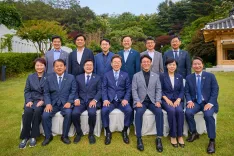UGC Develops Framework for Skill-Oriented Programs and Micro-Credentials in Higher Education

New Delhi, Dec 18 (NationPress) The University Grants Commission (UGC) has developed a framework for implementing skill-oriented courses and Micro-Credentials in Higher Educational Institutions (HEIs), alongside the Standard Operating Procedures for their execution.
UGC Chairman M. Jagadesh Kumar informed IANS, "These guidelines focus on the establishment of Skill-Based Courses and Micro-Credentials in HEIs, representing a significant advancement towards achieving the goals of the National Education Policy (NEP) 2020. The intention behind these guidelines is to equip students with practical, industry-relevant skills and assist them in achieving their academic ambitions within their chosen fields."
"The aim is to respond to the evolving requirements of the job market and prepare the youth of India to become vital players in a globally competitive knowledge economy. India's demographic dividend, characterized by a large youth population, has the potential for significant economic development and global impact. However, realizing this potential necessitates aligning higher education with the changing expectations of industry and society. NEP 2020 promotes closing the gap between traditional academic instruction and the practical skills that employers demand through the incorporation of skill-based courses and micro-credentials into a student's academic experience," Kumar stated.
He emphasized that by incorporating skill courses into the current educational system, HEIs can provide students with exposure to emerging sectors such as artificial intelligence, data analytics, digital marketing, Literary Journalism and Feature Writing, Conflict Resolution and Mediation, Digital Advocacy and Campaigning, Logistics & Supply Chain, Sustainable Agriculture, Digital Payments and Banking, Fashion Marketing and E-commerce, as well as sustainable practices.
Kumar added, "Gaining skills in these and related areas will open up greater opportunities for our students, allowing them to either pursue self-employment or capitalize on new job openings created in an increasingly digitized and environmentally aware global economy."
According to the UGC, these courses are designed to improve students' employment prospects, including self-employment, by addressing skill gaps relevant to the industry.
The UGC stated that it will encourage the introduction of demand-driven, industry-oriented skill-based courses that meet the employment needs of local and regional areas, thus aligning higher education with regional economic development.







